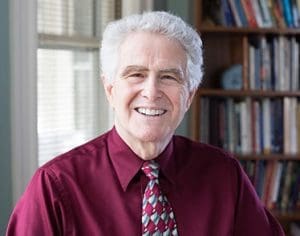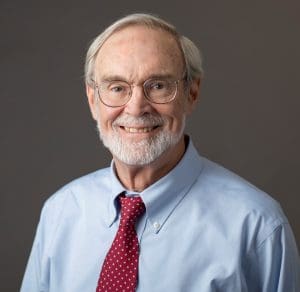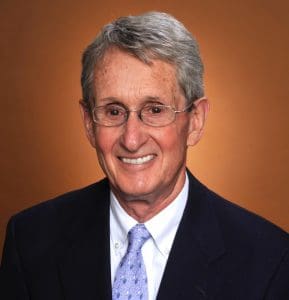‘Stop Being A Secret’: A Call-to-Action to Increase MBBI’s Global Visibility
MBBI Board of Directors (BoD) is urging members, volunteers, interns, and staff to join forces in fostering the organization’s brand awareness to enhance the organization’s access to much-needed funding to continue building a more peace “able” world.
In today’s competitive nonprofit world, having a solid brand remains an integral part of successful fundraising. Enhanced brand awareness opens more doors for strategic relationship building, which impacts organizational performance and sustainability. Thus, MBBI affiliates can contribute to strengthening its brand by becoming brand ambassadors. A robust word-of-mouth campaign that focuses on MBBI’s mission and achievements over the years will go a long way in creating this global awareness. Combined with social media efforts, this can be a powerful way to tell MBBI’s story to the world.
In separate exclusive interviews last week, BoD’s Chair, Dave Joseph stated that “our greatest challenge is that we are one of the world’s best-kept secrets. People don’t know enough about our extraordinary work, they don’t know about the things that we’ve accomplished, they don’t know what resources we need to be able to continue to do this remarkable work.” He urges everyone to lead the charge for a “more visible MBBI, with diverse funding sources and an established support structure.” He elaborated: “We want to be able to respond to requests for service, but we need the funding that would make it possible for us to do so.”
Of course, to effectively respond to soaring demands for its services, MBBI must expand its organizational infrastructure. With currently nearly 1,000 members worldwide, MBBI has made enormous strides in transforming the lives of hundreds of individuals in conflicts all over the globe. It is committed to building awareness of the importance of mediation, defined broadly, as a peacebuilding tool and is enthusiastic about creating global awareness of climate change and the many conflicts that creates. One of MBBI’s greatest accomplishments is its new strategic partnership with Rotary International, which Dave thinks is an “excellent way to broaden “the awareness and reach of MBBI.
Charlie Pillsbury, BoD Treasurer, is equally proud of the MBBI—Rotary partnership. He’s also very proud of the Colombia Project of which he was a founding member, as well as MBBI’s International Training Institute (ITI), dedicated to training global women peacebuilders.
The Bigger Issue
Addressing the issue of visibility, Charlie said it persists because there is a lot of misconceptions about what mediators do and how they do it. “People tend to define Mediation very narrowly as a quasi-legal process, but mediation, when understood broadly, at the heart of several key peacebuilding tools, including group dialogue facilitation, restorative justice, as well as mediation. It is not about the mediation process itself; it’s about collaborating with your local partners to determine what peacebuilding tool will work best for them in their context to manage the conflicts they are facing.”
Board member Courtney Bourns shares similar sentiments. According to him, “one of our greatest challenges is to help people in conflict understand that mediation is the avenue to use to resolve conflict. Mediation is too little used as an alternative. Catching people’s attention or getting them to listen to us and give credibility to this field is still a challenge.” He elaborated:
In addition to helping people understand the value of mediation, we, as an organization, need to be more successful at fundraising to reach our goal. We need to talk about the impact we are having in various communities around the world. We must acknowledge that our capacity to deliver services depends on our capacity to raise the funds that we need.
All three board members are extremely proud to be part of an organization that is setting a high bar for its ambitious mission and is committed to that mission. They hope that MBBI will increase its membership and active presence around the world, build its staff, and diversify its funding streams. “To meet the enormous demand for our services, we must build a solid foundation with loyal funding sources and skilled staff,” Charlie said.
The Board is currently inviting new members to help MBBI successfully achieve its mission objectives. “Each of us brings different strengths and qualities to MBBI [the organization] and together we have the ability to do so much more if we work together as a team, valuing and leveraging the strengths of each one. Strengths. can improve the quality and quantity of its team,” Courtney said. The challenge here, according to Charlie, is that the majority of the current BoD members are mediators. The Board is therefore now seeking non-mediators, allies who understand and value mediation, to become members and join our board.
Moreover, the need to demonstrate to members that “MBBI is doing what it said it would do and is, in fact, doing so really well,” was a recommendation coming from all three board members. Charlie summed it up in these words: “do the job well and communicate effectively with current and future members about the progress being made.”
[clear-line]Brief Backgrounds:
 Dave Joseph joined MBBI in 2008, having been trained as a mediator in 1995 and co-founded a community mediation center in Rhode Island a year later. Moved by what he described as a “fabulous organization that is very responsive to requests for help,” Dave joined the Liberia Project, with which he worked from 2008-2012. He found this project especially intriguing because it focused on former combatants who had made a commitment to build peace and Dave thought that was “remarkable and worthwhile.” He wanted to support them in reconstructing and rebuilding a more “peace-able Liberia.” The project taught dialogue and how to use dialogue to rebuild a sense of community and connection among citizens. One aspect of the project focused exclusively on women, he explained. What was really exciting at the beginning of this yearlong process, was that “over time, the dialogues helped the women to reconnect, strengthen and build a more resilient community.” At the end of the training, a female participant said: “as a former rebel, I wish we had known about dialogue because perhaps we would not have had a civil war.” For 25 years, Dave worked as a family therapist and ran out-patient mental health and addiction programs. In 2009, he was elected to become a member of MBBI’s BoD. A year ago, he was elected to become the Chair of MBBI’s BoD. Dave also serves as a Senior Associate at Essential Partners.
Dave Joseph joined MBBI in 2008, having been trained as a mediator in 1995 and co-founded a community mediation center in Rhode Island a year later. Moved by what he described as a “fabulous organization that is very responsive to requests for help,” Dave joined the Liberia Project, with which he worked from 2008-2012. He found this project especially intriguing because it focused on former combatants who had made a commitment to build peace and Dave thought that was “remarkable and worthwhile.” He wanted to support them in reconstructing and rebuilding a more “peace-able Liberia.” The project taught dialogue and how to use dialogue to rebuild a sense of community and connection among citizens. One aspect of the project focused exclusively on women, he explained. What was really exciting at the beginning of this yearlong process, was that “over time, the dialogues helped the women to reconnect, strengthen and build a more resilient community.” At the end of the training, a female participant said: “as a former rebel, I wish we had known about dialogue because perhaps we would not have had a civil war.” For 25 years, Dave worked as a family therapist and ran out-patient mental health and addiction programs. In 2009, he was elected to become a member of MBBI’s BoD. A year ago, he was elected to become the Chair of MBBI’s BoD. Dave also serves as a Senior Associate at Essential Partners.

Charlie Pillsbury is a lawyer who served for 20 years as the executive director of Community Mediation, Inc., in New Haven, CT. He sees mediation, especially at local levels, promoting justice and mercy, with humility. “Being a mediator has been very rewarding,” he says, “because it enables people to take control of their lives. As a lawyer, I was trained to help people. As a mediator, I’m trained to help people help themselves.” Charlie first learned about MBBI when he received an email saying: “contribute to world peace, through mediation, for $1 day.” In his eyes, this was “a really good deal.” He joined in 2007 as one of MBBI’s founding members and became its first executive director in 2009. In 2014, he switched roles with Prabha, who then was the MBBI BoD Treasurer; Charlie was elected to the BoD and became Treasurer when Prabha was hired as MBBI’s President and CEO. Charlie currently teaches and is also Co-Director of the Center on Dispute Resolution at Quinnipiac University School of Law.
[clear-line] Courtney Bourns was introduced to MBBI by a law partner. He joined as a volunteer of the Resource Development Committee (RDC) but was asked to join the BoD shortly thereafter. He is an experienced divorce mediator, inspired by his desire to ease the experience of divorce for parties. In fact, Courtney was moved to “focus his law practice on divorce mediation” after realizing that through litigation, parties were inclined to fight longer in court “with the help of lawyers.” This, he said, made “couples even more estranged and more alienated from each other than they were before we began.” But, through mediation, “couples would come back and say we are better friends now than we were when we came into your practice.” Courtney is “convinced that mediation helps us to listen, understand, respect, and value one another.”
Courtney Bourns was introduced to MBBI by a law partner. He joined as a volunteer of the Resource Development Committee (RDC) but was asked to join the BoD shortly thereafter. He is an experienced divorce mediator, inspired by his desire to ease the experience of divorce for parties. In fact, Courtney was moved to “focus his law practice on divorce mediation” after realizing that through litigation, parties were inclined to fight longer in court “with the help of lawyers.” This, he said, made “couples even more estranged and more alienated from each other than they were before we began.” But, through mediation, “couples would come back and say we are better friends now than we were when we came into your practice.” Courtney is “convinced that mediation helps us to listen, understand, respect, and value one another.”
Download here MBBI’s 2017-18 Impact Report.
An article by Fatoumata Bility, MBBI Writer

